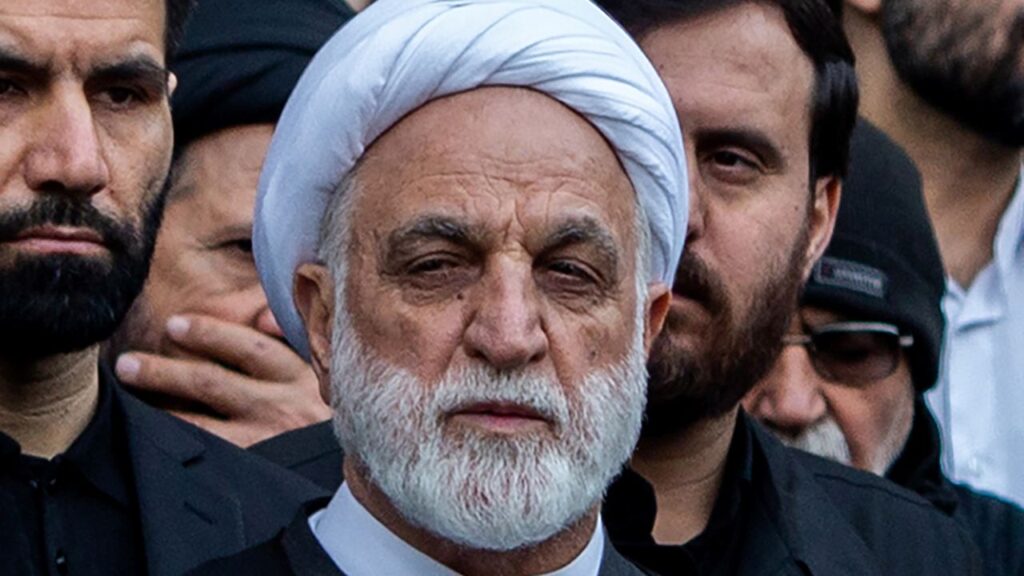Assemblymember Joaquin Arambula says Fresno Economic Opportunities Commission has been "hemorrhaging" money. (GV Wire Composite/Paul Marshall)

- The Fresno Economic Opportunities Commission has been depleting its reserves, causing Assemblymember Joaquin Arambula to raise concerns.
- Federal 990 forms highlight the annual gap between the agency's revenues and expenses and the depletion of cash savings in recent years.
- Regular finance reports provided to the Board of Commissioners also revealed steady increases in net operating losses.
Share
|
Getting your Trinity Audio player ready...
|
One Fresno state lawmaker has put a spotlight on the financial morass of the Fresno Economic Opportunities Commission by calling for a forensic audit.
Assemblymember Joaquin Arambula’s letter to his fellow commissioners in November, one month after he replaced his mother on the commission, charged that the agency’s financial footing was becoming precarious because leaders had been balancing deficits in recent years by drawing on reserves.
Those reserves are now “drained” as the agency has been “hemorrhaging” money, the letter said.
In addition, a longtime EOC commissioner is sounding the alarm over the agency’s seeming refusal to deal with its financial challenges.
Records show that the agency’s spending has outpaced income even as its revenue grew from about $100 million in 2019 to more than $150 million in 2023.
Nonprofits need to maintain some reserves to cover payroll and pay other expenses in the event of an economic downturn or loss of funding.

Arambula wants the audit to find out where the money has gone, and who knew how it was being spent.
In an interview with GV Wire, Arambula questioned how the agency’s leadership allowed the finances to deteriorate, potentially jeopardizing the anti-poverty agency’s programs that include Head Start, meals, transit, and the Local Conservation Corps.
“I have learned from years at the state that you have to live within your means, and you have to be responsible in budgeting to make sure that the programs that are benefiting people are around for the long term,” said Arambula, a five-term Fresno Democrat representing the 31st Assembly District. “That same level of responsibility needs to be embedded in the budget here at EOC. And when I see them depleting their reserves to such a level, we have to question whether there are red flags, and why they didn’t see that and do more.”
Two of the agency’s top leaders left last year. The Board of Commissioners did not renew chief executive officer Emilia Reyes’ contract in December, and longtime board chair Linda Hayes resigned her Target Area H seat after serving 14 years as a commissioner.
Reyes and Hayes did not return phone calls seeking comment.
The board named former CEO Brian Angus, who retired in 2019 after nearly a decade in the job, as interim CEO while a search for a permanent CEO is conducted. Commissioner Oliver Baines, a former Fresno City Councilmember, assumed the board’s chairmanship at the start of 2024.
Arambula terms out of the Assembly in 2026 and plans to run for the Fresno City Council.
One of Nation’s Oldest Anti-Poverty Organizations
The Fresno EOC, one of the nation’s oldest Community Action Agencies, has more than 30 programs that include Head Start, School of Unlimited Learning, Local Conservation Corps, food services, Women Infant and Children, and energy services. The Local Conservation Corps has operated a recycling center since 1993.
The private, nonprofit agency was created during President Lyndon B. Johnson’s War on Poverty. The goal of the Economic Opportunity Act of 1964 was to obtain equality of opportunity in education, employment, health, and living conditions for every American. Fresno EOC was one of 900 Community Action Agencies created through the act and was founded in 1965. The agency serves more than 100,000 Fresno County residents annually.
It is led by a 24-member Board of Commissioners. Eight are elected from regions A through H across Fresno County; eight more represent business community and community groups such as the NAACP and Reel Pride Fresno.
The remaining eight are appointed by elected officials: two by the Fresno County Board of Supervisors, one by the Fresno mayor, and one each from Juvenile Court, State Center Community College District, the 16th Congressional District (Rep. Jim Costa), 14th Senate District (Sen. Anna Caballero), and Arambula’s 31st Assembly District.
Arambula had appointed his mother, Amy, as the 31st District’s representative in 2020. He said his mother, who had previously represented the Juvenile Court and Sen. Melissa Hurtado on the board, had become increasingly frustrated at the agency’s lack of transparency and decided to step down after 10 years. He then appointed himself to replace her in October.
“Over her time on the board, she began to not get answers regarding their finances or the answers were withholding vital information regarding their overall financial picture. That led to her asking me to allow her to resign from the board,” he said. “Having known my mother as long as I have and the fight that she has in her, I find that particularly troubling. Because she’s not one to back away. She does it when she’s not feeling the transparency that’s required from public agencies that are overseeing public resources.”

Charles Garabedian Jr., who was first appointed to the Fresno EOC board in 1999 by the Fresno County Board of Supervisors and is one of the two longest-serving commissioners, headed the board’s Finance Committee for several years before it was discontinued in 2024.
Garabedian said when he saw the growing deficits in recent years he raised concerns with agency officials and fellow board members, but to little avail.
“I was seeing it. I was raising the flags and, those who heard me, heard me. Those who did hear me and didn’t want to do anything, can’t say who they are. But I raised the flags. And it just went from there,” he said. “I kind of knew what was going to happen. And so when it does happen, that’s (when) finally I said, ‘Look, this is what’s happening.’ I can only do so much.”
Garabedian said he began to ask himself whether he should continue on the board since his concerns and warnings were ignored.
“If I’m there to share my knowledge and my talents and it doesn’t go anywhere, then why serve? I’d rather be someplace where, it’s not to be respected, but where what I say could be taken a little more seriously,” he said.
Annual Reports to IRS Show Growing Losses
Agenda reports in recent years show that agency staffers were disclosing ever-widening deficits to the commissioners, using actual red ink to highlight the budget’s growing deficits.
The forms Fresno EOC is required to file annually with the IRS as a nonprofit claiming tax-exempt status also revealed the loss of savings and the gap between revenues and expenses.
In the Form 990s, nonprofits report their financial data: revenues, expenses, compensation for the highest-paid administrators, investment income, investments in publicly traded securities, savings, and temporary cash investments.
In this case, the forms provide a window into the Fresno EOC’s declining reserves and spending patterns.
According to the Form 990s, the Fresno EOC was steadily depleting its savings and temporary cash investments over three years ending in 2023.
The agency reported $7,289,870 in 2020, $6,138,431 million in 2021, $4,322,249 in 2022, and $3,456,596 in 2023 — less than half of its savings four years earlier.

One other asset reported in 2022 and 2023 was “investments in publicly traded securities,” which was reported as $296,000 in 2022 and $175,000 in 2023.
The forms also reveal Fresno EOC’s deficit spending. From 2019 through 2023, the Fresno EOC reported only one year — 2020 — when revenues exceeded expenses. In 2019, expenses topped revenues by $1,086,743. Two years later the gap was even wider — $13,612,907, although it was initially reported as $9,392,789.
In 2022, expenses exceeded revenues by $1,577,307; it nearly doubled the following year to $2,961,427.

Net Operating Losses Began in 2022
The Fresno EOC financial reports, as reported in the online agendas, show that the Finance Committee and the full Board of Commissioners were receiving regular spending reports.
Early in 2022, the agency’s net operating gains began to grow smaller month by month. Then in May 2022, the finance reports began showing net operating losses instead of gains, and those losses quickly mounted into millions of dollars.
Agency officials were reporting to the Board of Commissioners that the Fresno EOC was locked into several multi-year contracts for which expenses were exceeding revenues.
Despite the mounting net operating losses, top administrators continued to travel to conferences. Reyes’ CEO report for February 2023 reported that she and three others attended NCAP’s annual Management and Leadership Training Conference in New Orleans. The National Community Action Partnership (NCAP) provides technical assistance, training, and other resources to Community Action Agencies like Fresno EOC.
The same month as the New Orleans conference, the Finance Committee reported a net operating loss of $343,531, according to a finance report dated three months later.
And, while the Fresno EOC’s reserves continued to shrink, compensation to its top administrators kept growing.
According to the Form 990s, in 2020 the three highest-paid administrators were Reyes, whose pay and benefits totaled $195,953; chief operating officer Michelle Tutunjian, $162,879; and chief administrative officer Heather Brown, $157,139. By 2023, Reyes’ pay and benefits had climbed to $265,673; Tutunjian’s was $192,734. The third-highest pay package that year went to Jack Lazzarini, the chief programs officer, who was paid a total of $187,800.
Arambula Calls for More Transparency
Transparency is important for agencies spending public money, Arambula said.
But the Fresno EOC says that as a nonprofit public corporation, it’s not subject to the California Public Records Act, even though it receives substantial federal and state funding — the current annual budget is $134 million and almost all of that comes from public funds.
Efforts two years ago by an anonymous person or group named Taxpayer Watch to learn about travel and other expenses by agency officials were thwarted when the agency rejected a public records request.
Earlier this month, GV Wire sent a similar public records request to Fresno EOC seeking public records relating to:
- gifts to staff and elected officials;
- events paid for by the organization;
- staff and board retreats;
- training, travel, and conference expenses for EOC leadership staff;
- meals and credit card statements;
- salaries, benefits, and bonuses from January 2020 through the present.
Attorney Kenneth J. Price, representing the agency, responded that Fresno EOC does not have to respond to public records requests, with a few exceptions:
“Fresno EOC is a nonprofit public corporation, not a ‘local agency’ as that term is defined in the CPRA. As a result, Fresno EOC is not generally subject to the CPRA except for certain records related to its status as a recipient of federal Community Service Block Grant (“CSBG”) funds via the California Department of Community Services and Development (“CST “). Moreover, Fresno EOC is subject to the CPRA specifically for records related to the School of Unlimited Learning (“SOUL “), a charter school that it administers. Since your letter does not appear to request records related to CSBG or SOUL, Fresno EOC has no records responsive to your request.”
Arambula says that he plans to continue pushing for more transparency, particularly with regard to how the agency is spending public funds.
“Every public resource should be conducted in the public’s eye,” he said. “For me, I’ve operated always under the Brown Act. I prefer it and enjoy it.”
RELATED TOPICS:
Categories

Who Could Take Over for Ayatollah Ali Khamenei?

Why Have You Started This War, Mr. President?


















